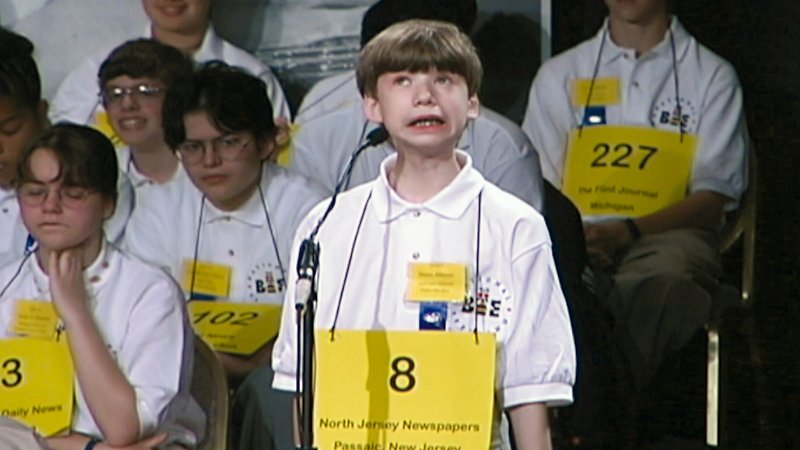
Screened as part of NZIFF 2003
Spellbound 2002
Forget X2: the real action is with this group of gifted misfits. You won’t believe the suspense as dozens of students from around the USA meet in Washington to do battle in bouts of competitive spelling. Only in America could learning become so gladiatorial, as the punishing finals of the National Spelling Bee are televised on ESPN. Will the hot favourite survive to the final round, or be flummoxed by some Latinate monstrosity? Will plucky Ashley make it from the DC projects to national stardom? On the bloodsport level, this is a riveting spectacle, but Spellbound goes much deeper than mere lexploitation. First-time director Jeff Blitz and his crew focus on eight competitors (several more failed to make the final cut), and this representative selection says a lot about the aspirations and expectations of two generations of Americans. A high proportion of contestants are the children of new immigrants, for whom the Spelling Bee may represent their best shot at clambering to the top of the monocultural heap.
With impressive economy, we get to know each of the kids, and the filmmakers are careful to highlight their individuality. For all the similarity of their skills, the contestants are drawn from a wide range of ethnic and socio-economic backgrounds, and, perhaps more surprisingly, represent an equally broad spread of approaches towards the competition, from single-minded obsession to cool indifference. The latter attitude, we are reminded, does not win tournaments, but it might help insulate the eliminated from the devastation of defeat.
Hyperactive Harry convulses with stress as he tackles ‘cephalalgia’ and ‘banns’; serious Neil, put through an extraordinary regime of intensive training by his even more competitive parents, finds his Indian heritage of little help when confronted with ‘darjeeling’ (the look on his father’s face is alone worth the price of admission). It’s natural to root for the contestants with the best back-stories – Angela, the self-taught daughter of illegal immigrants with no English, surely deserves to win – or to cruelly hope that the kids with the most overbearing parents are eliminated first, but this film does not always follow the reassuring contours of fiction. And one should not underestimate the audience-participation aspect of Spellbound. In the irrefulgent auditorium you may animadvert the sussurrus of discombobulated phonographists. Can I have the etymology, please? — Andrew Langridge